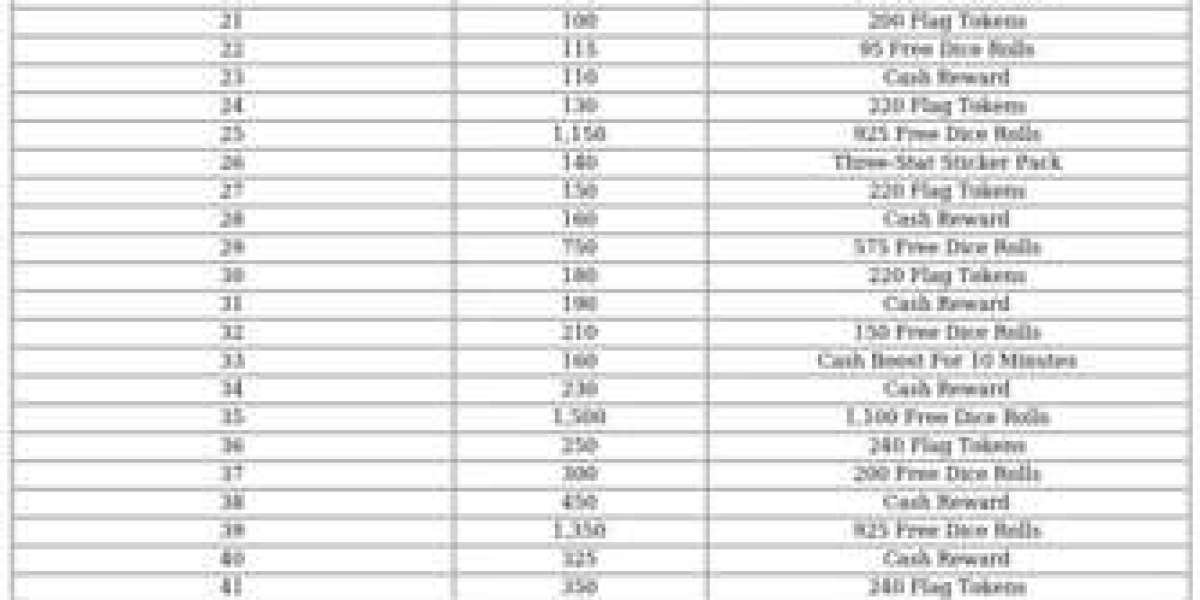Global Executive Summary Smart Hospitality Market: Size, Share, and Forecast
CAGR Value
- The global smart hospitality market size was valued at USD 36.48 billion in 2024 and is expected to reach USD 236.20 billion by 2032, at a CAGR of 26.3% during the forecast period
- This growth is driven by factors such as technological advancements, demand for personalized guest experiences, improved operational efficiency, sustainability initiatives, rising need for contactless services, and better connectivity
To gain meaningful market insights and thrive in this competitive market place, Smart Hospitality Market survey report plays a key role. The report takes into account the market type, organization size, accessibility on-premises and the end-users’ organization type, and accessibility at global level in areas such as North America, South America, Europe, Asia-Pacific, Middle East and Africa. Smart Hospitality Market report displays several parameters related to Smart Hospitality Market industry which are systematically studied by the experts. These parameters mainly include latest trends, market segmentation, new market opening, industry forecasting, target market analysis, future directions, opportunity identification, strategic analysis, insights and innovation.
The universal Smart Hospitality Market report helps make known uncertainties that may crop up due to changes in business activities or introduction of a new product in the market. This market research report provides thorough information about a target markets or customers. Moreover, it takes into account both qualitative and quantitative techniques of market analysis. Focus groups and in-depth interviews are included for qualitative analysis whereas customer survey and analysis of secondary data has been carried out under quantitative analysis. It helps companies to take decisive actions to deal with threats in the niche market. An excellent Smart Hospitality Market report proves to be a sure option to help grow the business.
Stay ahead with crucial trends and expert analysis in the latest Smart Hospitality Market report.Download now:
https://www.databridgemarketresearch.com/reports/global-smart-hospitality-market
Smart Hospitality Industry Overview
Segments
- By Offering: The smart hospitality market can be segmented by offering into software, and services. The software segment is expected to dominate the market due to the increasing adoption of smart solutions by hotels, restaurants, and other hospitality businesses to enhance guest experiences and streamline operations.
- By Hotel Type: Based on hotel type, the market can be segmented into business hotels, heritage and boutique hotels, and resorts and spas. The business hotels segment is anticipated to witness significant growth as these establishments are increasingly integrating smart technologies to meet the demands of tech-savvy business travelers.
- By Deployment Model: The smart hospitality market can also be segmented by deployment model into on-premises and cloud. The cloud segment is projected to grow rapidly as cloud-based solutions offer scalability, flexibility, and cost-effectiveness to hospitality businesses.
Market Players
- Huawei Technologies Co., Ltd.: Huawei is a key player in the smart hospitality market, offering innovative solutions that cater to the digital transformation needs of the hospitality industry.
- IBM Corporation: IBM provides a range of smart hospitality solutions leveraging technologies such as artificial intelligence and IoT to deliver personalized guest experiences and operational efficiencies.
- Cisco Systems, Inc.: Cisco is a prominent player in the market, known for its networking solutions that help hotels and resorts connect various devices and systems to create a unified smart environment.
- Siemens AG: Siemens offers comprehensive smart building solutions that are increasingly being adopted by the hospitality sector to optimize energy efficiency, security, and comfort for guests.
- Schneider Electric: Schneider Electric provides integrated solutions for smart hotels, including energy management systems, building automation, and smart room controls.
The global smart hospitality market is witnessing significant growth driven by the increasing adoption of advanced technologies in the hospitality sector to improve guest experiences, streamline operations, and enhance overall efficiency. The demand for smart solutions in hotels, restaurants, resorts, and other hospitality establishments is rising as businesses seek to stay competitive in a rapidly evolving industry landscape. Factors such as the proliferation of IoT devices, the growing emphasis on personalized services, and the need for cost-effective operational management are fueling the market expansion. With key players constantly innovating and offering tailored solutions to meet the diverse needs of the hospitality sector, the future looks promising for the smart hospitality market.
The smart hospitality market is continuously evolving with the rapid integration of advanced technologies to meet the dynamic needs and preferences of the modern traveler. One emerging trend in the market is the focus on sustainability and eco-friendly practices within hospitality establishments. With increasing awareness of environmental issues, hotels and resorts are implementing smart solutions to reduce energy consumption, minimize waste, and enhance overall sustainability efforts. This trend is not only driven by consumer demand for eco-conscious options but also by the cost-saving benefits that sustainable practices can offer to hospitality businesses in the long run.
Another key aspect shaping the smart hospitality market is the emphasis on data security and privacy. As hotels and restaurants collect vast amounts of guest information through smart technologies, ensuring the protection of data has become a critical concern. Market players are investing in robust cybersecurity measures, encryption technologies, and compliance frameworks to safeguard sensitive guest data and uphold trust in their services. By prioritizing data security, hospitality businesses can mitigate risks associated with cyber threats and demonstrate their commitment to safeguarding customer information.
Furthermore, the integration of artificial intelligence and machine learning algorithms in smart hospitality solutions is revolutionizing guest interactions and operational efficiencies. AI-powered chatbots, virtual assistants, and personalized recommendation systems are enabling hotels to deliver tailored experiences, anticipate guest needs, and streamline service delivery. By harnessing the power of AI, hospitality establishments can optimize resource allocation, forecast demand accurately, and enhance overall operational performance.
Moreover, the concept of contactless technology has gained momentum in the smart hospitality market, especially in the wake of the COVID-19 pandemic. Contactless check-ins, mobile room keys, and digital payment solutions are becoming essential features for ensuring guest safety and minimizing physical touchpoints. This trend towards contactless experiences not only aligns with health and safety protocols but also enhances convenience and efficiency for both guests and staff.
In conclusion, the smart hospitality market is experiencing a profound transformation driven by key trends such as sustainability practices, data security measures, AI integration, and contactless technologies. As market players continue to innovate and adapt to evolving consumer expectations, the future of smart hospitality holds immense opportunities for growth, innovation, and enhanced guest experiences. By staying ahead of these trends and embracing technological advancements, hospitality businesses can position themselves for success in a highly competitive industry landscape.The smart hospitality market is undergoing a significant transformation propelled by various key trends that are reshaping the industry landscape. One major trend is the rising focus on sustainability practices within hospitality establishments. Hotels and resorts are increasingly adopting smart solutions to reduce energy consumption, minimize waste, and enhance overall sustainability efforts. This shift towards eco-friendly practices is not only driven by consumer demand for environmentally conscious options but also by the cost-saving benefits that sustainable initiatives can offer to businesses in the long term.
Data security and privacy have become paramount concerns in the smart hospitality sector as establishments gather substantial guest information through smart technologies. Market players are investing in robust cybersecurity measures, encryption technologies, and compliance frameworks to protect sensitive data and maintain trust with customers. By prioritizing data security, hospitality businesses can mitigate risks associated with cyber threats and showcase their dedication to safeguarding customer information, thereby enhancing their reputation and credibility.
The integration of artificial intelligence (AI) and machine learning algorithms is playing a pivotal role in revolutionizing guest interactions and operational efficiencies within the smart hospitality market. AI-powered chatbots, virtual assistants, and personalized recommendation systems are empowering hotels to provide customized experiences, anticipate guest needs, and optimize service delivery processes. Through the application of AI technologies, hospitality establishments can enhance resource allocation, predict demand accurately, and improve overall operational performance, leading to increased customer satisfaction and operational effectiveness.
Contactless technology has emerged as a significant trend in the smart hospitality market, particularly in response to the challenges posed by the COVID-19 pandemic. Contactless check-ins, mobile room keys, and digital payment solutions have become essential features to ensure guest safety and reduce physical touchpoints. The adoption of contactless experiences not only aligns with health and safety protocols but also enhances convenience and operational efficiency for both guests and staff members, reflecting a shift towards more seamless and technologically driven hospitality experiences.
In conclusion, the smart hospitality market is experiencing a paradigm shift driven by trends such as sustainability practices, data security measures, AI integration, and contactless technologies. As industry players continue to innovate and adapt to changing consumer expectations, there are ample opportunities for growth, innovation, and the delivery of exceptional guest experiences. By embracing these trends and leveraging technological advancements, hospitality businesses can differentiate themselves in a competitive market environment and position themselves for long-term success and sustainability.
Access detailed insights into the company’s market position
https://www.databridgemarketresearch.com/reports/global-smart-hospitality-market/companies
Alternative Research Questions for Global Smart Hospitality Market Analysis
- What is the current market valuation of the Smart Hospitality Market?
- At what CAGR is the Smart Hospitality Market projected to grow?
- Which are the top-performing product categories in this market?
- Who are the emerging players in the Smart Hospitality Market?
- What regions are witnessing rapid demand in the Smart Hospitality Market?
- Which countries show significant market potential?
- What are the major driving factors behind this Smart Hospitality Market growth?
- How has the Smart Hospitality Market changed over the past five years?
- What are the opportunities for new entrants?
- What is the competitive landscape of the market?
- What technological advancements are influencing the Smart Hospitality Market?
- Which segment holds the largest market share?
- What partnerships or collaborations are influencing the Smart Hospitality Market?
- What is the role of e-commerce in driving sales?
Browse More Reports:
North America Dental Diagnostic and Surgical Equipment Market
Europe Dental Diagnostic and Surgical Equipment Market
North America Dental Imaging Market
Europe Dental Imaging Market
North America Dual Emission X-Ray Absorptiometry (DEXA) Equipment Market
Europe Dual Emission X-Ray Absorptiometry (DEXA) Equipment Market
Asia-Pacific Dual Emission X-Ray Absorptiometry (DEXA) Equipment Market
Middle East and Africa Fitness Equipment Market
North America Geotechnical Instrumentation and Monitoring Market
Europe Geotechnical Instrumentation and Monitoring Market
Asia-Pacific Geotechnical Instrumentation and Monitoring Market
Middle East and Africa Geotechnical Instrumentation and Monitoring Market
Singapore Geotechnical Instrumentation - Monitoring Market
Asia-Pacific Automated Cell Cultures Market
Europe Automated Cell Cultures Market
About Data Bridge Market Research:
An absolute way to forecast what the future holds is to comprehend the trend today!
Data Bridge Market Research set forth itself as an unconventional and neoteric market research and consulting firm with an unparalleled level of resilience and integrated approaches. We are determined to unearth the best market opportunities and foster efficient information for your business to thrive in the market. Data Bridge endeavors to provide appropriate solutions to the complex business challenges and initiates an effortless decision-making process. Data Bridge is an aftermath of sheer wisdom and experience which was formulated and framed in the year 2015 in Pune.
Contact Us:
Data Bridge Market Research
US: +1 614 591 3140
UK: +44 845 154 9652
APAC : +653 1251 975
Email:- corporatesales@databridgemarketresearch.com



